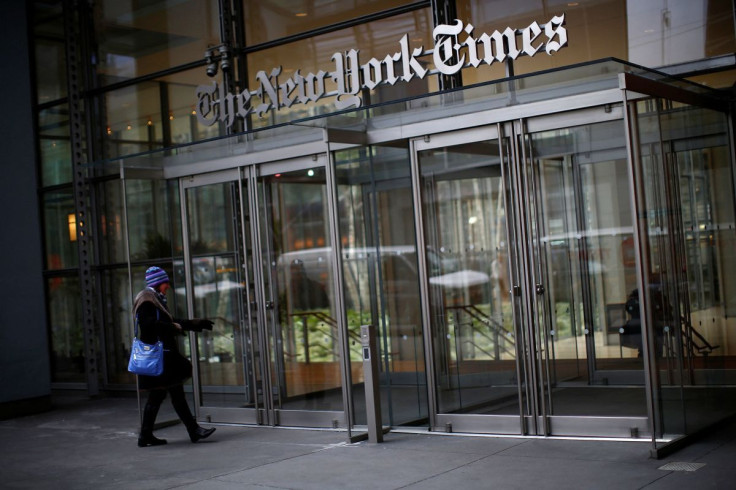NY Times Fires Back At Defamation Plaintiff With Anti-SLAPP Lawsuit

The New York Times sued an anti-immigration author for the cost of defending itself against defamation in the first lawsuit of its kind under New York's recently expanded "anti-SLAPP" law to protect critical speech.
The company is seeking unspecified fees spent fending off a 2020 lawsuit by Peter Brimelow, according to the company's lawsuit, which was filed on Tuesday.
Brimelow had sued the company over five articles published between January 2019 and May 2020 that described him as being "white nationalist" and his VDARE.com website as being "animated by race hatred."
Brimelow said the lawsuit does not have merit. "This lawsuit, like the five articles at issue in the original litigation, is but another effort to raise the stakes against dissident (but desperately needed) voices," he said in an email.
The Times said in a statement it was the first anti-SLAPP case by the company which it called an important step in protecting itself from defamation claims.
One of the five articles that Brimelow alleged was defamatory was originally published by Reuters and republished by the Times. Brimelow did not name Reuters in his lawsuit.
The lawsuit by Brimelow, who has said he thinks the United States is a white nation, was dismissed in December 2020 soon after New York expanded its anti-SLAPP law, which is meant to deter lawsuits that are designed to punish defendants for speaking out on public issues.
SLAPP stands for "Strategic Lawsuit Against Public Participation" and then-Governor Andrew Cuomo said the expanded law would protect free speech by preventing wealthy interests from using the court to bully their opponents.
The Times lawsuit is the first in which a defendant in a SLAPP case turned around and sued the plaintiffs after getting the case dismissed, according to Daniel Novack, an attorney who specializes in media law.
The anti-SLAPP law has also been embraced by defendants in the original litigation.
Fox News argued a $2 billion defamation lawsuit by the Smartmatic voting systems company violated the law and former President Donald Trump tried unsuccessfully to use the law to sue E. Jean Carroll, a writer who said he raped her in the 1990s.
© Copyright Thomson Reuters {{Year}}. All rights reserved.





















